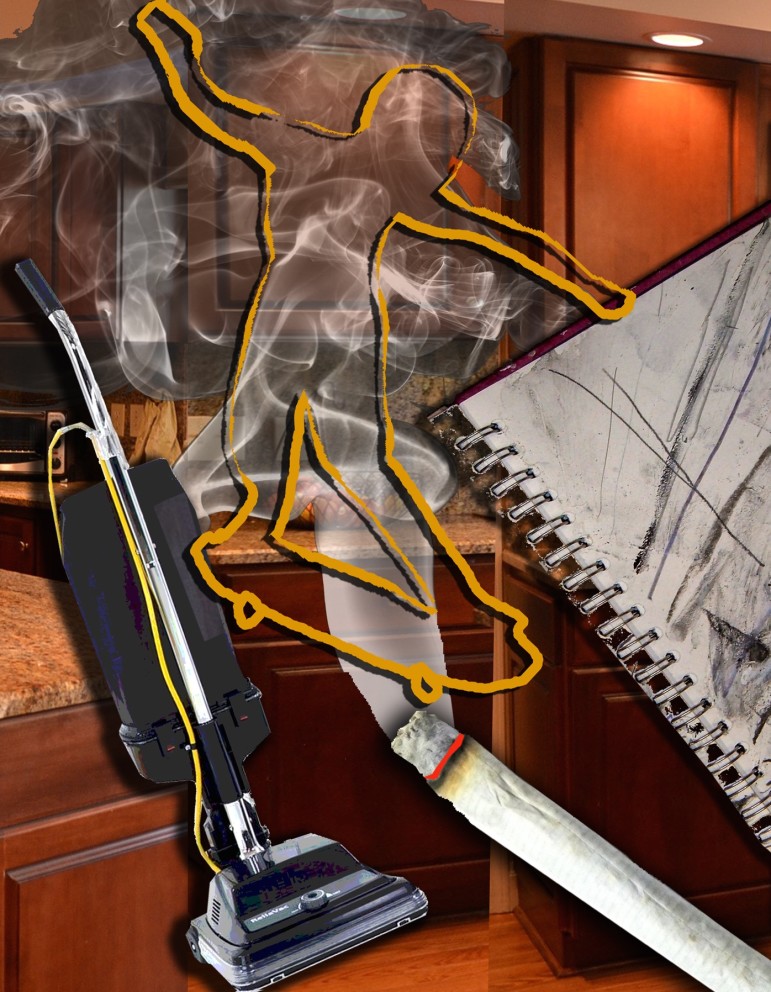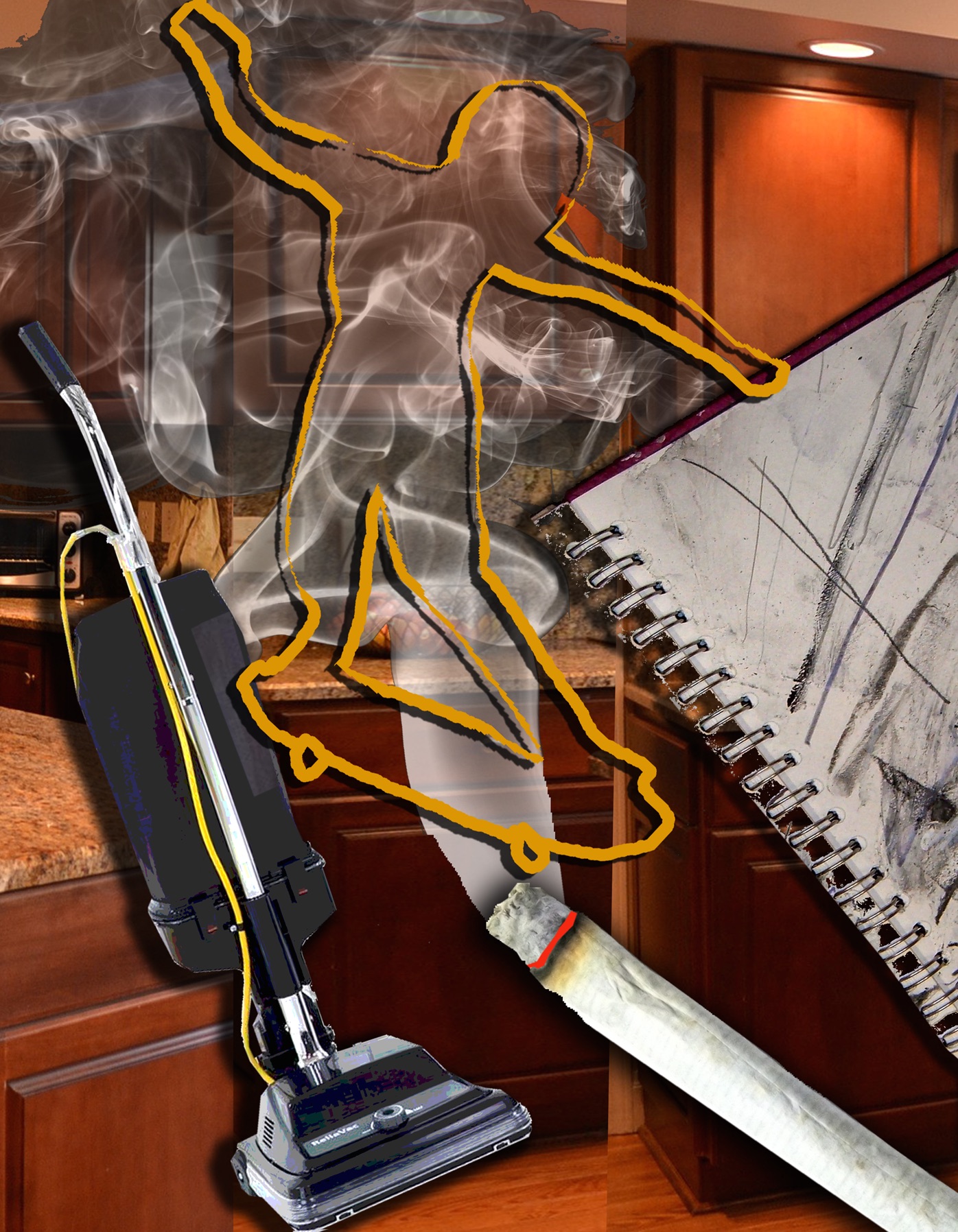
From age 12 to 21, I lived in nine foster homes, two group homes, three residential treatment centers, and five community residences. Every place I went, I felt like I did not fit in or belong. I fought a lot for no good reason with girls who seemed to resent me. I didn’t think I was better than anyone, but trouble always seemed to find me.
In all those years I was bounced around, I didn’t know where I belonged or what would happen when I aged out of care. I hoped to meet a nice family who would accept me, love me, and hopefully adopt me, but my mother wouldn’t give up her rights. (I suspect it’s because I received Social Security Income for mental illness, which she used to pay the rent.) My best foster mother made delicious meals and told me she loved me. But I still AWOLed — I wasn’t used to a loving home. Therefore, I had to leave her and go to a group home.
Confusingly, my mother began to act nicer as I got older. At age 18, sick of the foster care system, I signed myself out and went to live with her again. I thought her abusive and destructive ways had ended since she was off drugs. However, after two months, I realized I’d made the wrong choice. She screamed at me every day and tried to pick arguments with me. I got tired of her mouth and her newest abusive boyfriend. I went to a shelter called Covenant House.
I went in and out of the shelter for more than two years, sleeping at different relatives’ houses for a few weeks at a time before returning to the shelter, where I shared a room with two other girls around my age. Then one of the workers at Covenant House found me my own apartment in Staten Island through a housing program called the New Covenant. It’s a program for kids trying to arise from homelessness. You have to follow the rules in the shelter to get it.
My own home
When I first saw the place, I couldn’t wait to move in. It’s a studio in a nice community of townhouses, and the inside was incredible. It had three big closets, a nice bathroom, and a beautiful kitchen with marble counters and wood cabinets. I signed a lease, and then it was all mine. I stayed at my sister’s house for three weeks until the workers from Covenant House moved my belongings and me to my new apartment.
When I first moved in, I was uncomfortable about the idea of living alone. I went from excited to petrified on the first night. I have been afraid of the dark since I was little, but I never told anyone. My mother abused and neglected me and let her boyfriends molest me, so I knew there was no point in asking her for comfort.
I faced my fear of the dark, however, when I saw the electric bill. When I moved in, I hadn’t worried about the rent because it’s set at 30% of the $735 a month I get in SSI. I didn’t find out until after I signed my lease that I also had to pay utilities. It was a cold winter, and my last gas bill was $140. It became real that I would have to come up with money to support myself.
Even though I have my own place, I still feel like I was thrown into adulthood unprepared. I never learned how to be independent because nobody took time to show me simple things, like how to make a sandwich, tie my shoes, speak properly, or even brush my teeth. I learned how to brush my teeth from TV. Nobody taught me to stick with things, so I give up too easily.
Part of me wishes adults were still doing things for me because I didn’t get enough of that. Another part feels more independent and glad that nobody can tell me how to live my life and what to do. I feel mature, proud, and relieved when I do things like get myself a state ID at the DMV and make my own appointments for the doctor or for welfare.
The adult I want to be
Even though I am 21, I still feel like a kid sometimes. I never had a childhood, and that makes me feel stuck in childhood sometimes. When I am at a friend’s or relative’s house and there are children, I hang out with them more than I do the adults. They look like they have more fun—playing video games, jumping on the trampoline, skateboarding. I wish I’d gotten to do more of those things when I was a kid.
I’m still figuring out what “adult” means. Stable adults go to the doctor, have careers, pay bills, and budget. They take care of themselves. Of course, there are adults who do drugs and are not employed, like my mother.
My mother went through a lot of trauma, which she took out on me. She took drugs, dated abusive men who hurt me, and she put me down. I need to keep reminding myself that the negative messages I got from her are not true. Also, she is on SSI and hasn’t worked for a long time, and I don’t want that for myself.
I don’t feel guilty about getting SSI for mental illness—I went through a lot of abuse and other trauma growing up, and I’m still getting over that. However, I could work, and I have.
So why haven’t I tried harder to get a job? I graduated high school seven months ago, and I haven’t applied to college. I write at Represent, but otherwise, I stay home and smoke weed. I need to understand what is keeping me from moving forward.
Self-doubt and weed
I used to doubt myself and think I wasn’t good enough to keep a job or go to school. I worried that I’d get fired or kicked out of school for no reason. My mom and her boyfriends and girls in my group homes didn’t like me and were mean to me for no reason. So what if that happened with a boss or teacher? Working or going to college are scary because of my past.
All the abuse I suffered makes me think I’m not smart enough for college. I tell myself, “Get off your lazy ass and start looking for a job. Go to college and find something you’re good at and get a career.” But then I think, “Ha, you in college?! You’re not smart enough. You wouldn’t last a week. You’re just going to embarrass yourself. The other kids are going to look at you and laugh. They can smell where you came from.” That’s the way my mom talked to me.
All these negative thoughts make me feel bad. That leads me to smoke weed, which temporarily makes me have better thoughts. I can think of ways to improve my life or take care of myself when I’m high. I’ll tell myself: “Check the weather before you go out” or, “You should quit smoking cigarettes.” I am calmer when I’m high.
But when I smoke weed, I also get sidetracked, daydream, or procrastinate because I want to do 10 things at once and the results are not as good as they seemed when I was high. For example, I switch from writing a poem to drawing a picture to cleaning. I think it’s because I am lonely and loneliness makes me look for random things to do. I’ve also been diagnosed with ADHD (Attention Deficit/Hyperactvity Disorder). I’ll tell myself I need to fill out job applications online, but instead I’ll grab a book and read for three minutes, then go looking for the next activity to do.
I told my therapist I wanted to quit smoking weed and she prescribed me the lowest dose of Wellbutrin. That’s an antidepressant that helps people stop smoking and helps them focus. I just started taking it, so I don’t know how it will work yet. I really hope it helps me focus because I get distracted a lot from important things like looking for a job. I feel that behind my distraction and boredom lies fear of failure. For most of my life I’ve been belittled, not encouraged.
Sometimes I talk too much. I think it might be so I can control the conversation and not have to answer questions that might lead to things I’d rather hide: homelessness, crazy mother, foster care, abuse. People remind me that those things aren’t my fault, but I still feel shame.
Listening to the right voices
I am lucky to have adults in my life now who build me up instead of tearing me down. One of them told me that a lot of kids start college without knowing what they will major in. I remembered her voice and the voices of others who believed in me. After I talked to my case manager from Covenant House about continuing my education, he said he would help me get a scholarship. Those words sounded like a sweet melody. I remind myself that I graduated high school with an 89.91 GPA. I’m no dummy.
But sometimes my mom’s voice drowns out those other voices, and I lose my confidence. Then I stay in the house, feel more lazy and more depressed, and smoke more weed.
It is often a struggle between these two sides of me. When I’m feeling good, I motivate myself and my negative thoughts get angry and leave. When my negative thoughts are not bothering me, I apply for jobs online and it makes me feel more motivated. I can imagine getting the job.
It’s hard to live alone without any structure. I know that working will help get me into a schedule and out of the house, and I will be less depressed.
I need to be kinder to myself because beating myself up doesn’t motivate me to action. What motivates me are small accomplishments, like applying for jobs or cooking a meal that tastes good.
I feel myself getting more self-sufficient; I shop and cook for myself and I get myself up and onto the ferry to go to Represent and to go job hunting. I have total freedom. Nobody starts problems with me or screams at me. But even though I’m finally safe, I feel scared about my future. I feel like I’m behind other people my age. While their parents were teaching them how to be adults, my mother was doing drugs and stealing my SSI money.
I never had a mature role model, so I’m not sure what sort of adult I want to be. If I demand too much of myself and fail, I’ll become more depressed. The trick is to not put too much pressure on myself while I’m still healing from my mom’s abuse. But I also need to learn how to discipline myself to do what I need to do to get a life I want.
The writer was 21 when she wrote this piece last year as a participant at Youth Communication, a New York City-based nonprofit that helps educators engage struggling youth and build their social, emotional and literacy skills. This column was created for Represent, Youth Communication’s magazine written by and for youth in foster care.




























